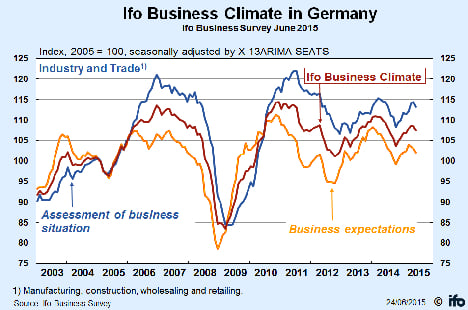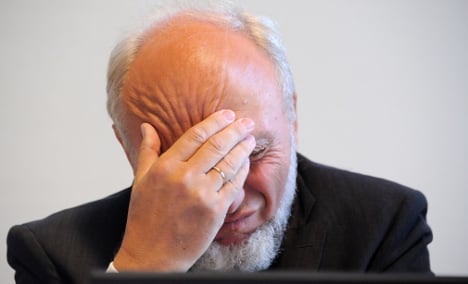The Ifo Business Climate Index has fallen from 108.5 points to 107.4 points, the Institute for Economic Research in Munich reported on Wednesday.
The Ifo Index is considered as the most significant early indicator for how the German economy is developing.
The Institute for Economic Research calculates the index each month by surveying around 7,000 firms in manufacturing, construction, wholesale and retail. The firms are asked to give their assessments of the current business situation and their expectations for the next six months
Analysts had been expecting to see a result of around 108.1 points, Spiegel reported.
“The prospects for the German economy are overcast,” said the Ifo president Hans-Werner Sinn in a statement.
A graph of the index over the last 12 years shows that despite the recent dip, confidence is still reasonably high, but expectations for the coming months are much lower.

In June's report, businesses proved to be less satisfied with the current climate and sceptical about the months to come.
The index for current situations fell from 114.3 to 113.1 points and from 103 to 102 for future expectations.
Experts are tracing the latest slump in the economic mood back to the Greek crisis, which is causing insecurity within the German business sector, analysts from VP Bank told reporters.
Rising interest rates have also been pinpointed as a reason behind the slump in business confidence.
By Matty Edwards



 Please whitelist us to continue reading.
Please whitelist us to continue reading.
Member comments